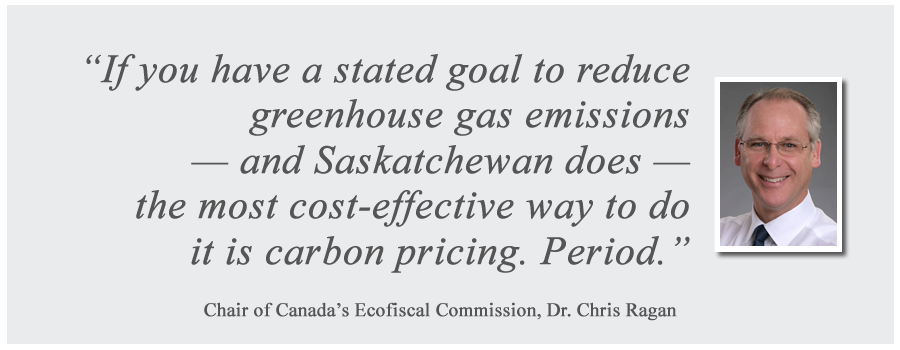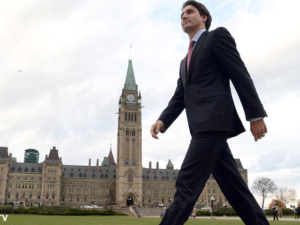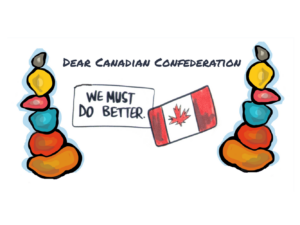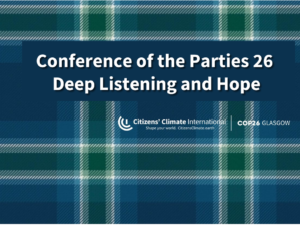
Premier Wall, Please Embrace Carbon Fee and Dividend
On Monday, October 3, 2016, the provincial and territorial Environment Ministers were at a meeting in Montreal, Quebec, Canada when Prime Minister Justin Trudeau announced that Canada would have a national price on carbon pollution and will enforce it, if necessary, on the provinces. Several Environment Ministers walked out of the meeting, including Minister Scott Moe of Saskatchewan [1].
Premier Brad Wall of Saskatchewan severely rebuked PM Trudeau [1], accusing him of reneging on a promise to work with the provinces, “The level of disrespect shown by the prime minister and his government today is stunning. This is a betrayal of the statements made by the prime minister in Vancouver this March. And this new tax will damage our economy.”
In April 2016, Wall claimed that he is already pricing carbon because Saskpower “sells” the pollution it captures at the Boundary Dam Project in Estaven to big developers like Cenovus Energy to enhance their oil recovery efforts [2] . Boundary Dam is a carbon capture and sequestration (CCS) facility. CCS is the process of trapping the carbon dioxide produced by burning fossil fuels or any other chemical or biological process, and storing it in such a way that it is unable to affect the atmosphere.
In Saskatchewan, coal accounts for 44 per cent of their fuel and produces 70 per cent of the greenhouse gas (GHG) emissions [3]. Saskatchewan is the largest emitter of greenhouse gases (GHGs) on a per capita basis in the country — about 70 tonnes for every man, women and child in the province [4].
Premier Wall is right to be proud of Saskatchewan’s cutting edge CCS technology because, the fact is, the world needs carbon CCS to avoid catastrophic climate change [5]. Saskatchewan has taken huge risks on a very expensive technology at a time when countries such as Britain have shut down their CCS research [6].
Important to note is that Shell estimates a carbon price of $60-80 justifies the cost of CCS [7].
As well, however groundbreaking the Boundary Dam project is, it does not keep up with the size of Saskatchewan’s GHG emissions [2]. The province of Saskatchewan, needs to use other mitigation strategies besides CCS such as regulation or carbon pricing. In April 2016, the chair of Canada’s Ecofiscal Commission, Dr. Chris Ragan openly stated to Premier Wall, “If you have a stated goal to reduce greenhouse gas emissions — and Saskatchewan does — the most cost-effective way to do it is carbon pricing. Period.” [4]
On the face of it PM Trudeau’s national carbon tax looks like the antithesis of cooperative federalism but keep in mind it will be revenue neutral and all revenue collected will be returned to the provinces. Thus, Premier Wall was inaccurate when claimed that a carbon tax would siphon more than $2.5 billion from the province’s economy once fully implemented, and cost the average family $1,250 a year [1]. He has the power to give all carbon tax revenue back to citizens.
A predictably increasing carbon price will send a clear market signal, which will entice entrepreneurs and investors to put money into the new clean-energy economy, including CCS. As well, it will help Saskatchewan meet its climate commitments. And if the carbon fee is revenue neutral and thus the antithesis of a tax-grab, it won’t be a burden on the taxpayers.
Since September 2010, Citizens’ Climate Lobby (CCL) Canada members have been lobbying their provincial and federal parliamentarians for carbon fee and dividend: an upstream, national and incrementally rising revenue neutral carbon tax where 100 percent of the money is returned to citizens on an equitable basis in a cheque. Premier Wall, please embrace a carbon fee and dividend for the province of Saskatchewan. Adopting carbon fee and dividend as your province’s carbon pricing policy would make you a world leader in fighting global warming.
REFERENCES
[1] http://www.cbc.ca/news/politics/federal-provincial-environment-ministers-meeting-1.3789134
[2] http://www.cbc.ca/news/canada/saskatoon/carbon-pricing-bypass-wall-1.3524686
[5] https://www.ipcc.ch/pdf/assessment-report/ar5/wg3/ipcc_wg3_ar5_full.pdf












